Alumni mentor young students - The Noel D'Cunha Sunday Column
Packaging pedagogy is struggling, what with top companies backing out of campus placement. “The morale is at a low point. We need to give hope and put the confidence back in the students in these incredibly uncertain times,” says Prashant Atre, managing director of Toyo Ink Arets India.
The Sunday Column looks at what is transpiring at PVG in Pune
02 Aug 2020 | By Noel D'Cunha
PrintWeek (PW): How did the PVG alumni mentor programme come about?
Prashant Atre (PA): The current situation has been extraordinary for all of us. While we all had challenging times keeping our businesses afloat, I wondered what must be going through the minds of our students who have passed out from the college. We realised this during an informal chat with an industry colleague.
This PVG Alumni Mentor Programme idea shaped up when we had a discussion with the PVG College’s head of the department, Prof Madhura Mahajan and other teachers. The sculptor of the idea was Subodh Kulkarni, a keen professional focussed on developing people, especially in the printing-packaging domain. He also formulated the structure of the programme.
PW: Who are the mentors?
PA: The immediate focus is on the first batch of alumni of the printing engineering programme. If this is successful and if it benefits the students, we plan to expand it to future batches as well. It will include more alumni to help with the cause.
So, currently, we are just six of us — Subodh Kulkarni (operations director, Amcor Flexibles Asia Pacific, Singapore); Nitin Wani (director, Smart Solutions, Pune); Sanjeev Popli (director, Popli Graphics, Delhi); Vijay Pareek (managing director, Genius Flexo Machinery, Mumbai); Suhas Kulkarni (Asia Pacific – head, DKSH) and Prashant Atre (managing director, Toyo Ink Arets India).
The programme kicked off on 7 July 2020.
PW: How have the six mentors reached out directly and helped the students?
PA: Since conceptualisation and planning was done in tandem with the college authorities, the entire initiation and coordination with the students was done by Prof Mahajan. We had two virtual group meetings with the students to explain the idea in the presence of the college principal Kalyani Kulkarni as well as the other teachers. Once the students understood the idea and enrolled to be a part of the programme, they were allocated to each of the mentors in equal numbers. From there on, it was direct interaction between the allocated students and the mentor.
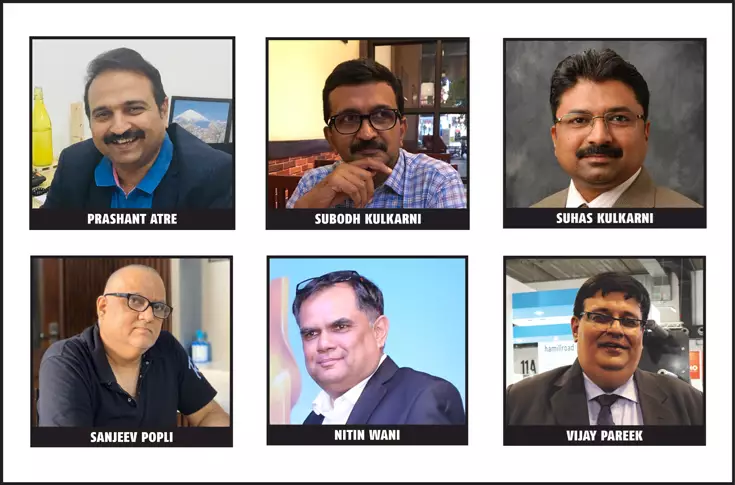
PW: There is a growing audience for skill development content. Are the mentors addressing them?
PA: All the mentors have a common vision to improve the skill set of the students, be they technical or soft skills and prepare them to be industry-ready. The main objective is to utilise this testing time in learning new skill sets (which are not necessarily a part of the curriculum) and also keep them positive, motivated and focused for a better future.
PW: What are the types of one-to-one conversations you have had with the students?
PA: Every student is different, and therefore, each student needs to be handled differently. Mentors evaluate the students individually on their potential, areas of interest and their abilities. Accordingly, they had group and individual sessions with students to guide them further.
All the mentors are working to upgrade the knowledge of the students based on their abilities, interests and future demands of the industry.
PW: You are a part of the PVG alumni. Has PVG made a change in their approach since the days you passed out? Or is it still the same old, same old?
PA: One likes it or not, “change is the only constant in this world”. So, to say that nothing has changed since we passed out would be wrong. But, to expect institutions to show changes and adaptabilities similar to what we see in the business world will again be too much to ask.
I have seen some significant changes in our college. It is now equipped with more machinery, better lab, better building and more teaching staff than in our time.
PW: Your view on virtual classrooms?
PA: There are some institutions which already had online classes over weekends. However, over a period of time, a balance can be found between virtual classroom and practical learning. As of now, we find it extremely tiring to continue our meetings and conversations through a virtual medium. But, these millennials are different and they may find this as the new normal.
PW: On the one hand the experts are talking about growing unemployment and on the other hand, there is a dearth of quality brains in our industry. What should our business strategy be? Why have we failed?
PA: This is true not only in our industry. It is a case for every industry and every area of work. It is really a sad state of affairs and there are multiple reasons for this. At first, our initial education system is designed to create clerks and not creators. It does not encourage creative or innovative ideas and skills unless some rare individuals outperform.
Second and most important is our evaluation system, our relaxed way to examination marks and performance grades. In the name of Right to Education, we are allowing under-performing students to upgrade to the next level instead of improving education and efforts on these students. So, there is no motivation to study hard.
'Skill India' needs to become the mainstream of our education for most to make a good living. A few brilliant students can pursue a formal education in research and bring a good change in the world.
PW: As a mentor have you implemented the new strategy at PVG?
PA: The process is being worked on and this pandemic has given us an opportunity to put our brains together. This is a new beginning. We will formalise it once the pilot project with this batch sees success through their improved skills, thus resulting in employment.
PW: What are the new trends in packaging? What do the PVG alumni say?
Well, PrintWeek and WhatPackaging? can be best referred to, to know the trends in packaging.
PW: Has the education system for packaging been slow to respond to the challenges of sustainability?
PA: Packaging is unique or perhaps more unique than the product inside. The primary objective is to protect the product. Packaging is a culmination of substrates (paper, films, multi-layer films, foils) and printing (inks, coatings, adhesives). Therefore, it requires the cumulative efforts of all the stakeholders to create a sustainable option for packaging.
But, everything comes with a price. Is the world, especially a developing nation like India, ready to pay the price for sustainable packaging over cheap and easy-to-make non-sustainable packaging, which is currently in abundance? That’s a million-dollar question.
PW: Education in packaging generally works in close co-operation with the institutions (converters, manufacturers, brands) in other parts of the world. Why are they so slow to respond to the changing need in our country?
PA: The entire value chain between institutions and converters can only be covered when institutions are also funded and being upgraded on a yearly basis, like in the paper and pulp industry. For example, Seshasayee Paper and Boards, West Coast Paper Mills and Ballarpur Industries fund the institutions of paper technology, which impart practical and theoretical knowledge to the students. As a diploma holder, these students can get employment at any of the paper mills across the country.
Our printing associations, large print houses and print suppliers should come together to create a corpus for local colleges and help students upgrade their knowledge and skills.
PW: Educationists have been talking in the same tone for the past four decades. The world has changed. How are teachers adapting in 2020?
PA: It is easy to point fingers at others (especially to the current set of teachers, who are mostly our juniors). But, it is important to understand why it is in this state? The education world is different from that of the business world. Their priorities, accountabilities and their assessments as teachers are different and are based on a set system designed by the universities. So, till the universities do not change their yardstick of accountability for teachers/ professors, it will perhaps not change much.
PW: In what way has the PVG alumni helped in creating new approaches that have boosted packaging?
PA: Luckily, many of the PVG alumni are doing remarkable work in the packaging space. Here, I would like to inform you that with the efforts of Prof Akshay Joshi and the support of the principal and head of department, printing, we at the “Board of Studies” could include more subjects of packaging in the new syllabus of printing in the University of Pune. This will boost packaging learning in students and thus will benefit the industry at large.
PW: How can packaging serve our world better in the post-pandemic world?
PA: At first, we hope and pray that there will be a post-pandemic world soon.
Packaging itself is a constantly evolving phenomenon. Currently, due to Covid-19, it is okay to ‘use and throw’ everything. Once the crisis is over, the world will get back to asking questions about recyclability, sustainability and saying ‘no’ to single-use plastic.
Post Covid-19, perhaps the world will respond more sensibly towards matters which are more human-centric and not just profit-centric. This will hopefully help in developing more sustainable packaging, which will come with a fraction of higher cost and the world will hopefully pay for it.
Prof Madhura Mahajan, head of printing engineering department, PVG’s College of Engineering and Technology, Pune

This initiative has been designed by the first batch of alumni of the printing engineering programme and the department of printing engineering to foster a meaningful relationship between alumni mentors and department students to navigate their career paths during the current difficult phase. It is also an opportunity for the printing alumni to engage with the young printing engineers and gain an experience of supporting a mentee who is eager to learn from them.
The programme kicked off on 7 July 2020 at 11.30 am vide a Google Meet online platform with a vision of creating a meaningful and lasting relationship between students and printing alumni to assist in academic, personality and career development.


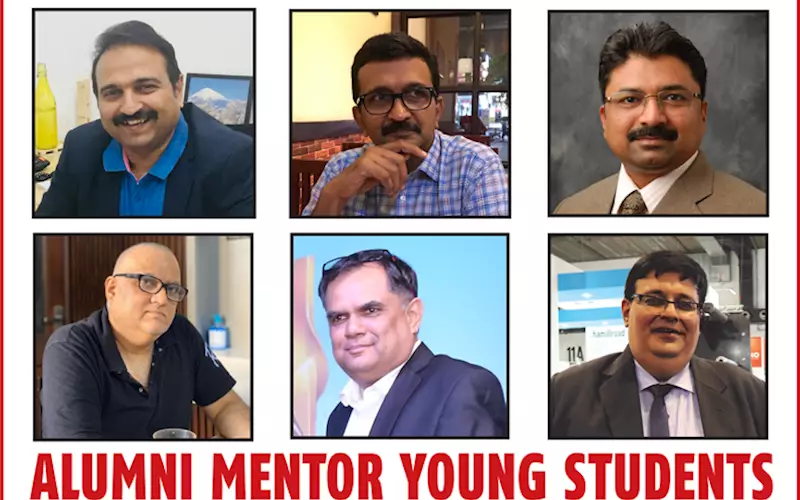








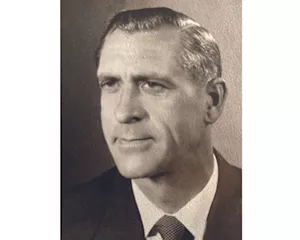
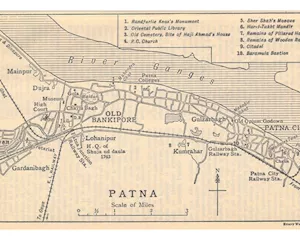
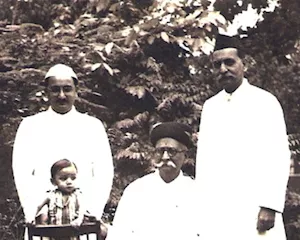
 See All
See All